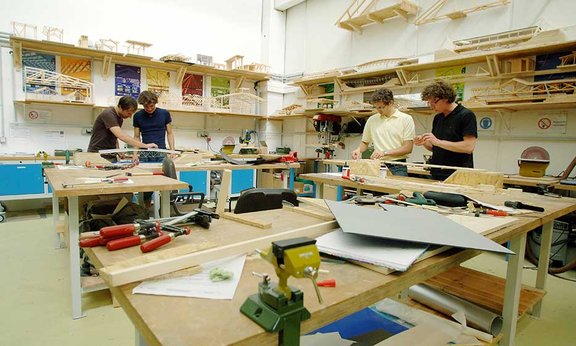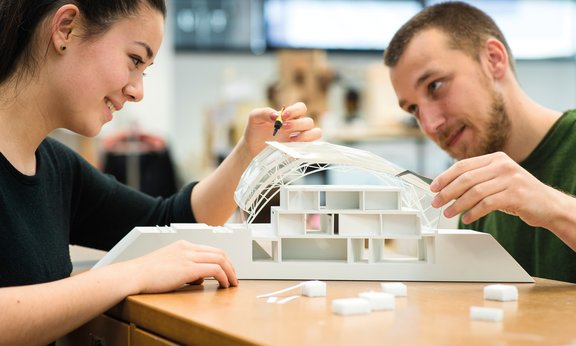Bachelor’s Programme Civil and Environmental Engineering
Would you like to study the basics of natural sciences and engineering and are you interested in energy-efficient construction, supply and disposal systems, transport systems and hydraulic engineering?
The students of this Bachelor’s Degree Programme acquire competencies in civil and environmental engineering that enables them to plan, construct, calculate, implement, operate and renovate buildings, bridges, tunnels, transportation systems, water supply installations, etc.
Other areas that are covered in this programme are transportation system planning, flood and avalanche control measures, noise protection systems as well as wastewater and waste disposal.
Please note: the language of instruction for this programme is German.
Faculty of Engineering SciencesExamination OfficeInformation for students with disabilities
Study Code
UC 033 264
Supplemental Examination
Supplemental examination in applied geometry is required before completion of the bachelor's degree programme if this subject was not completed satisfactorily with at least 4 credit hours at a higher-level secondary school ("Oberstufe") after the eighth grade.
FAQ
Graduates are able to elaborate, evaluate and implement scientific developments in the core fields of civil and environmental engineering and to apply them in interdisciplinary contexts. They possess scientifically well-founded theoretical and methodical problem-solving skills in order to quickly gain an understanding of new subjects and to apply civil and environmental engineering issues.
Due to the diversity and magnitude of tasks, civil engineering decisively contributes to the overall economic output and is of high economic relevance. This variety of activities and the close interaction of civil and environmental engineering with natural sciences, economics and law, and the rapid advances in construction and environmental technologies make the training of students all the more demanding. Within the context of the bachelor's programme, the following skills are to be developed and promoted:
Scientific skills:
by in-depth training in the basic principles and methods of natural sciences, by promoting analytical, interdisciplinary and networked thinking and the ability of students to think critically, by promoting abstraction and modeling skills.
Engineering skills:
by promoting students' understanding of complex interrelations and engineering problems through research-based instruction, by developing expertise in solving core tasks of engineering practice, by realising the creative potential of students to solve complex practical problems independently and by training them in modern IT, management and presentation methods.
Social skills:
by promoting team skills and by acquiring further knowledge in foreign languages.
The career fields of graduates of the Bachelor's Programme Civil and Environmental Engineering cover a wide range of subjects from feasibility studies, planning, construction design and analysis to the realization, operation, maintenance and renovation of constructions like buildings, bridges, transport infrastructure, water supply facilities and power stations.
Due to the important role attributed to the protection of the environment and the protection against natural hazards, the study programme also focuses on the civil engineering-related disciplines of environmental engineering like traffic planning, flood and avalanche protection, protection against noise, and the treatment of waste water and solid waste. The bachelor's programme prepares graduates for occpuational opportunities as engineers and for a related master's programme.
Graduates tracking: Shows which occupational fields students enter after graduation
Faculty of Engineering Sciences Examination Office Information for students with disabilities
Curriculum
From the field

Getzner stiftet neue Professur für Eisenbahnbau
Der Vorarlberger Werkstoffspezialist Getzner stiftet eine Professur für Eisenbahnbau und -betrieb an der Universität Innsbruck. Der Forschungsbereich wird sich auf die Themen Oberbau und Fahrweg konzentrieren und ein neues Kompetenzzentrum dafür etablieren. Forschungsarbeiten mit Bezug zur Nachhaltigkeit sollen zeigen, dass die Bahn wirklich in der Lage ist, die „grüne“ Alternative für die Mobilität der Zukunft zu sein.
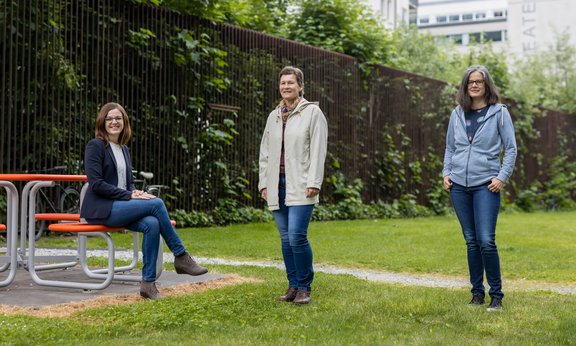
Aus Alt mach Neu
Im Projekt CIRCE 2020 arbeiten acht Partner aus fünf europäischen Ländern an Konzepten der Kreislaufwirtschaft für das produzierende Gewerbe. In der Pilotregion Tirol unterstützt der Arbeitsbereich Umwelttechnik der Universität Innsbruck das Projekt.
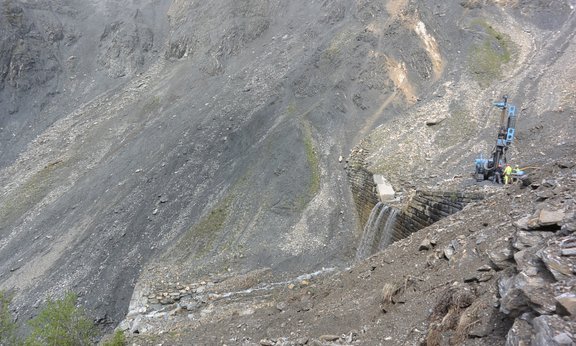
Gefahr gebannt
Menschen, Infrastruktur und Siedlungsraum vor Naturgefahren zu schützen, ist eine der Aufgaben von Robert Hofmann, Professor am Institut für Infrastruktur am Arbeitsbereich Geotechnik und Tunnelbau.
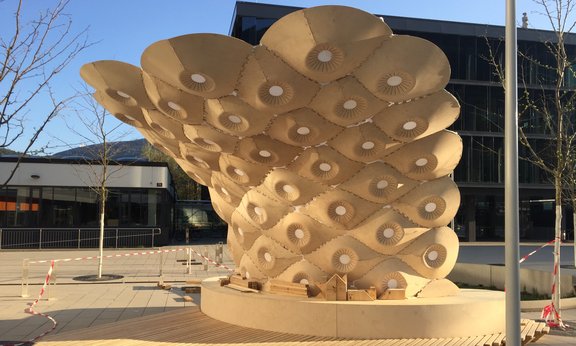
Holz da, wo es Sinn macht
Philipp Dietsch ist seit 1. März Professor für Holzbau und Leiter des gleichnamigen Arbeitsbereichs am Institut für Konstruktion und Materialwissenschaften. Holz ist seine Leidenschaft. Davon profitieren nicht nur seine Forschungsprojekte, sondern auch seine Studierenden.

